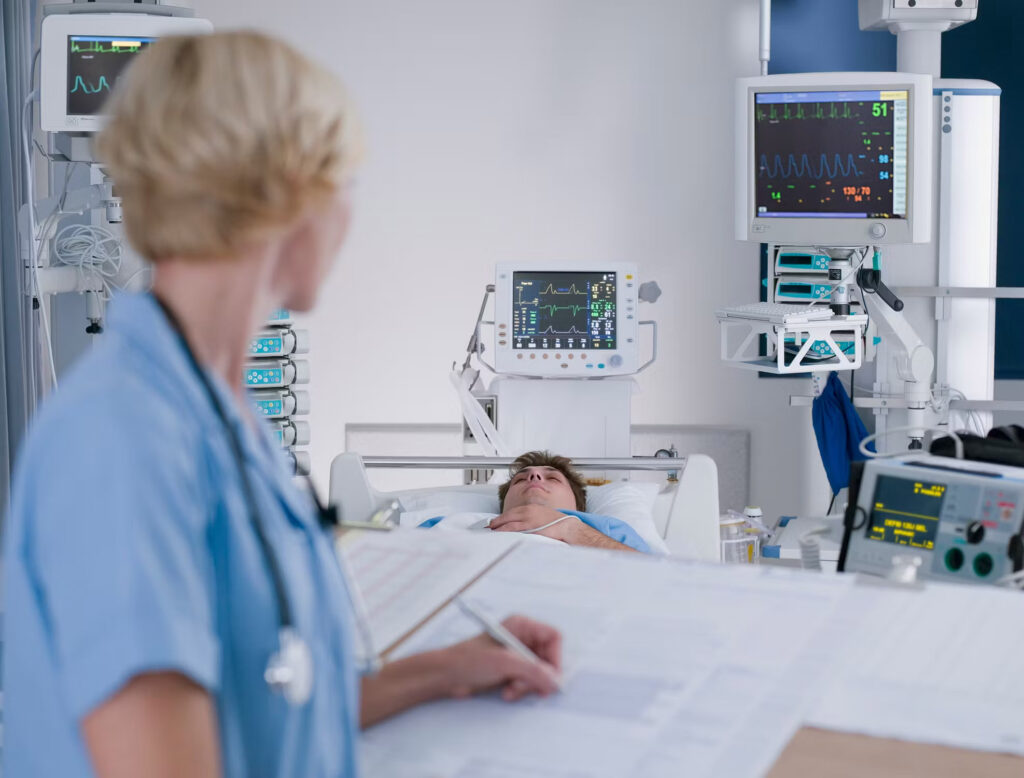Some three out of every four Americans between the ages of 20 and 59 say they routinely experience difficulty sleeping. Though not all of those issues translate into sleep disorders, those that do can interrupt day-to-day life and wreak havoc on your well-being. At Brunswick Pulmonary & Sleep Medicine, we may prescribe a sleep study to help get to the bottom of your sleep disorder and start formulating a plan for treatment.
A Sleep disorder is a sweeping term used to describe changes in typical sleep patterns that have a negative effect on your health and/or quality of life. Common sleep disorders include insomnia, sleep apnea, restless legs syndrome and narcolepsy. All affect your sleep, but symptoms may run the gamut from breathing issues to unusual sleep movements and could include

A diagnosis starts with a thorough medical history. Some sleep disorders are linked to underlying conditions. For instance, patients suffering from allergies or asthma may not realize they’re having trouble breathing at night, while chronic pain can keep you from resting soundly even if you manage to fall asleep. Even something that seems simple or that can be overlooked, like stress and anxiety, can interrupt or cause a drastic decline in the quantity and quality of your sleep.
Next, you may undergo a sleep study. Formally called a polysomnography, a sleep study analyzes recordings of your brain waves as well as readings measuring your blood oxygen level, heart rate, breathing rate and eye and leg movements to gauge your sleeping patterns and spot abnormalities. Sleep studies can be used both in the diagnostic phase and to adjust your treatment plan down the road.
Following your sleep disorder diagnosis, our dedicated team at Garden State Sleep Center, part of Brunswick Pulmonary & Sleep Medicine, will help you explore your options and find a better way to rest. Part of our brainstorming process includes gathering insights from other experts such as behavioral health specialists, dentists and ENTs (ear, nose and throat specialists). Together, we’ll explore a wide range of non-pharmacological treatments.
If your doctor recommends a sleep study, you’ll receive a list of specific instructions to help you prepare. This may include avoiding certain foods and drinks such as caffeine or alcohol that may act as stimulants or sedatives. You’ll also likely be told to avoid naps the day before your study and to bathe or shower and refrain from using lotions or makeup that could interfere with the electrodes used during the test.
Sleep studies are generally conducted overnight. Most facilities allow you to bring your own clothes to sleep in and adhere to reasonable parts of your normal bedtime routine to help create your typical experience as closely as possible. You’ll be in a dark room more like a hotel than a sterile hospital space, and your sleep will be monitored by trained technicians via a low-light video camera.
Once you’re attached to various tracking equipment, you’ll be encouraged to get some sleep. If you need assistance, you can communicate with the technicians using a two-way speaker system. Otherwise, do your best to rest.
Ultimately, your treatment options will depend on the results of your sleep study and other tests, but approaches may include:

At Brunswick Pulmonary & Sleep Medicine, we value a holistic approach to patient care, meaning we focus on treating you as a person rather than a collection of symptoms. By using every tool at our disposal, we do our best to help you reclaim your rest and get back to living a full, happy and healthy life. To schedule an appointment, contact us today.